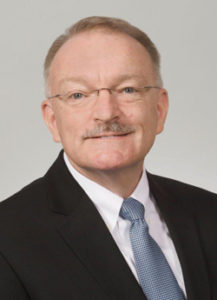
The Alabama Community College System hired Jeff Lynn in October as executive director for Workforce and Economic Development. Before that he was the head of the state of Louisiana’s LED FastStart workforce training program, for which he worked since 2008. Prior to that, he directed workforce development projects for Georgia’s Technical College System for 10 years. He grew up in Alabama and graduated from Auburn University. His first months in his new job were spent visiting campuses around the state and the companies they serve.
On our visits to campuses around the state and the companies in those service areas, a common theme is something that we should have been addressed 20-plus years ago. Having a strong manufacturing base throughout the state, we need a better certification program through the two-year college and dual enrollment high schools. One of our immediate goals is the implementation of MSSC standards, a national manufacturing certification program of the Manufacturing Skills Standards Council.
We’ve seen the results of not having such a program in the example of a company that is located at the Mobile Aeroplex at Brookley — VTMAE (VT Mobile Aerospace Engineering), a very sophisticated company that retrofits Boeing 757s for FedEx. They ran out of a pipeline of employees in Alabama and decided to build a new facility in Pensacola, and they now have about 550 employees over there. We need to be better at feeding that pipeline with the competencies, behaviors and technical skills for a company like that.
The MSSC came together in the late ’90s, led by Fortune 500 companies that were fed up with the product that was coming out of the school systems and wanted to make sure there was a set of standards to train workers. Nothing existed like it before, created for production and logistics.
We have had a lot of other certification programs, such as the NCCER, which prepares students in industrial construction with great fundamentals and technical abilities. But we need something specific for manufacturing companies. High schools want to be involved in dual enrollment and the two-year campuses are very excited, because it is a baseline program, which — beginning either at the two-year college or dual enrollment in high schools — applies toward future diplomas or degrees. Kids who might not know what they want to do at age 18 can know that the work they do will carry them forward to get credentials for a career.
What such a program will do is it will create a pipeline of skilled employees who come out of our schools across the state with the exact standards and abilities that companies want. And it’s going to decrease their recruitment costs. They will be able to prefer job candidates and move them to the top of the line to be interviewed. And it will eliminate remedial training costs in time and help retain qualified workers as well. Last but not least, it will create an agile workforce that’s capable of adapting to technology changes.
We also have got to create a world-class workforce development program at the two-year colleges. We need to standardize from campus to campus and city to city. We need to create a very customized training program that we can use to meet with business and industry and deliver customized programs that can get them through short-term needs.
I participated in a certified workforce developer program that had been created in Georgia and I helped to create one in Louisiana. It has a phenomenal return on investment. The candidates go through a nine-month workforce development program and have hefty homework and they come out of the program really able to take on workforce issues in their service area. They can do needs analysis and they understand forecasting of job needs. They graduate understanding a learning management system that allows them to pull down a curriculum or course and use it and sell it to companies in their region. They create these tools.
I think it’s going to be very inexpensive for companies to go through these programs. In most cases companies allocate a certain amount of their budget to training, and sometimes they do the training in state and sometimes they go out of state. We expect to be able to provide the training in state and at a very reasonable cost, so they can let us be the experts in the competencies their employees need to be trained in.
Another of the things we need to do better in our two-year colleges is to collect better data, in multiple areas. One area is customer relationship management. So that when we meet with companies around the state we can collect critical data and aggregate it and look at trends and programs that need implementation and get better at delivering them more proactively rather than reactively.
For example, there is a need for a lot of welding across the state, and particularly a lot of aluminum welding, so in meeting with the companies you identify the types of equipment needed in the schools to train those kinds of welders. Another example is identifying an alarming trend in turnover of supervisory personnel. And there is a huge need for CDL driver training. Or you might spot downward trends and identify programs that are not needed.
We also need to increase dual enrollment by 25 percent, and, I think, by creating those national manufacturing standards vetted by Fortune 500 companies we can accomplish that quickly.
Some of these things are low-hanging fruit, and we can implement them now. With the MSSC, there are some companies that want to get rolling immediately, so several community colleges are already working on that. And we are starting a curriculum for certification of workforce officers, and we’re looking at ways the K-12 folks can increase dual enrollment.
We need to market careers in manufacturing. It’s a problem we have had in the U.S. since World War II, and it isn’t fixed yet. Students can come out of two-year colleges with little or no debt and the ability to earn $50, 000 to $100, 000 a year and still have a four-year degree path that they can pursue until retirement. We just need to market that.
We want to use our young adults who have worked at companies across the state and use them as marketers for career opportunities.
We need to get schools the tools they needs so students can pull down the information they need to see that there are great careers out there. And we need to talk with them about how much money they can make and how they can be successful.
On February 27th we’ll be hosting six high schools to visit the Robotics Park in the Decatur area, and students will be looking at all the technology and software and the companies that use them. We have that great asset and many more that we will be using across the state, such as the maritime institute in Mobile.
Chris McFadyen is the editorial director of Business Alabama.



